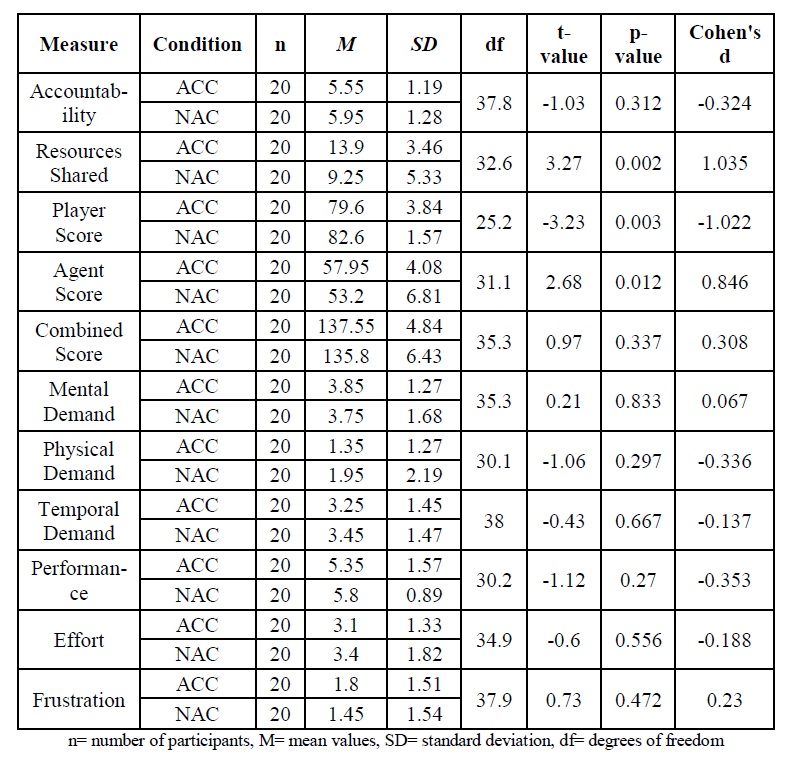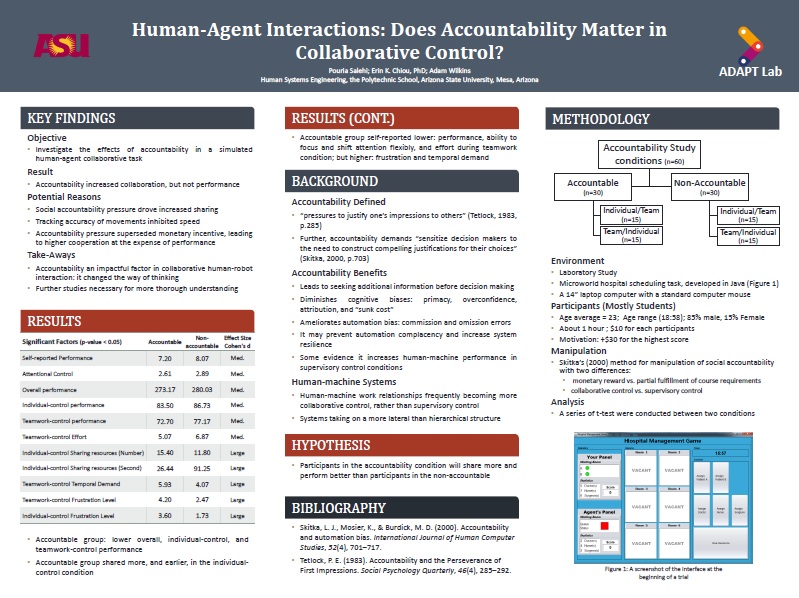M.S. in Human Systems Engineering
School: Arizona State University
The Human Systems Engineering degree primarily focuses on the area where engineering and psychology intersect. With much of the program’s focus being on experimental psychology and cognitive science. There was a great deal of emphasis placed on conducting human subject scientific research. This included designing, carrying out, analyzing the collected data, and reporting findings of the research.
My primary research focus while completing this program was on human-automation interaction. More specifically, much of the research I conducted was intended to understand how the concept of accountability impacted human interaction with automated systems. Understanding this facet of human-automation systems helps to inform the design of the systems to ensure appropriate levels of human engagement with the system. The focus on human-automation interaction provided great insight into AI and Machine Learning, and how these factors will likely shape the future of manufacturing.
Classes (Just a few of my favorites)
Human Automation Interaction (PSY560)
Methods and Tools of Human Systems Engineering (HSE521)
Methods and Tools of Applied Cognitive Science (HSE520)
Training and Expertise (HSE426)
Data Analytics (HSE598)
Projects (A few notable ones)
Thesis: Can Accountability be Instilled, in the Absence of an Authority Figure, in a Way Which Enhances a Human-Automation System?
Project: Research whether accountability, induced without an authority figure’s presence, can increase human engagement with automation.
My Primary Contributions:
- Solely responsible for all aspects of this research (e.g., study design, data collection, data analysis, etc.)
- Created a question to assess the level of accountability perceived by participants

Accountability in Human-Automation Interaction
Project: Research the effect of social accountability on human-automation interaction, with Pouria Salehi, under the supervision of Erin K. Chiou, Ph.D.
My Primary Contributions:
- Performed data collection, with the help of human research subjects
- Assisted in analysis of collected data, utilizing R
- Worked on the write up for a conference, and for publication
- Presented a poster at the SW Robotics Symposium

P&G Research Project for HSE542 (Foundations of Human Systems Engineering)
Project: As a group, envision the future of a Proctor & Gamble product
My Primary Contributions:
- Gathered quantitative and qualitative data, through consumer interviews and usability testing
- Created a customer journey map for the current customer experience with ZzzQuil
- Prototyping the interface, and made physical prototype
- Worked on video script with another group member, and was primary actor in video
Video
Publications
Accountability Increases Resource Sharing: Effects of Accountability on Human and AI System Performance
International Journal of Human-Computer Interaction – (2020, October)
Publication URL: https://doi.org/10.1080/10447318.2020.1824695
Abstract:
Accountability pressures have been found to increase worker engagement and reduce adverse biases in people interacting with automated technology, but it is unclear if these effects can be observed in a more laterally controlled human-AI task. To address this question, 40 participants were asked to coordinate with an AI agent on a resource-management task, with half of the participants expecting to justify their decision strategy, which comprised our accountability condition. We then considered the effects of accountability on performance, as measured by participants’ resource sharing behaviors, their individual, and joint task scores (throughput), and their perceived workload. Participants in the accountability group shared more resources with their AI partner, took more time to make decisions, and performed worse in the task individually, but had AI partners who performed better. We found no difference between groups on how prepared they felt they were to justify their decisions, and participants reported similar levels of workload. Results suggest accountability pressures can influence exchange strategies in human-AI tasks with lateral control.